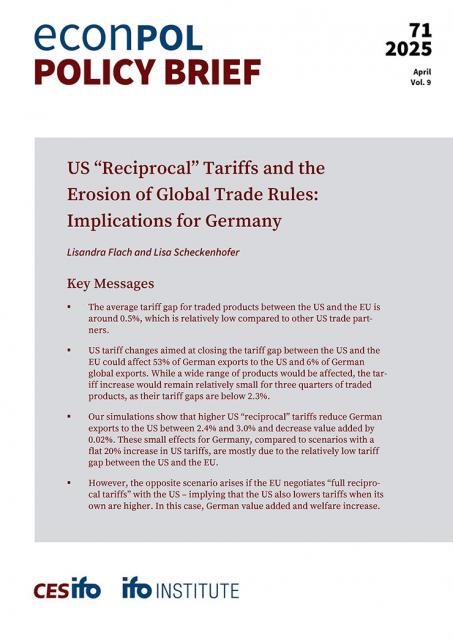News Archive

Pension Reform in Europe: Recent Experiences and Challenges Ahead
|
EconPol Events
| News
The second CEPS-EconPol lunch debate will be held at CEPS in Brussels on Wednesday 2 October. Per Eckefeldt (European Commission, Brussels), Tito Boeri (Bocconi University, Milan), Benjamin Bittschi (IHS, Vienna; EconPol Europe) and Felix Wellschmied (Universidad Carlos III, Madrid; EconPol Europe) will join CEPS’ Head of Economic Policy Cinzia Alcidi to discuss the topic ‘Pension Reform in Europe: Recent Experience and Challenges Ahead’.

Why do Dutch SMEs apply for fewer bank loans than their EU neighbours?
|
EconPol Policy Brief
| News
Bank loans continue to be the main source of external financing for small and medium-sized enterprises (SMEs), in both the Netherlands and other European countries. Businesses are using those loans for expansion, innovation or as working capital. But Dutch SMEs are applying for fewer bank loans, and those applications are often rejected by the banks. How does SME bank financing in the Netherlands relate to other European countries, and what are the reasons for the differences?

The Weakness of the German Car Industry and its Sectoral and Global Impacts
|
EconPol Policy Brief
| News
A sharp downturn in industrial production in the German car industry in the third quarter 2018 had an immediate impact on its main trading partners and is causing global and sectoral losses. The drop is raising questions about broader economic consequences, say EconPol researchers, who expect German car industry to stay in recession for the near future.
Press release (English): https://www.econpol.eu/press_releases/2019-09-05

In Systemic Competition with China
|
EconPol Opinion
| News
China’s success with state capitalism poses security concerns and huge economic challenges for western market economies. Its economy has boomed over the past 20 years, with private industry contributing much to recent success. And while private industry has helped the rise of China, it’s only one part of the economy. State enterprises and state-controlled firms play a dominant role; the former accounts for 35% of China’s GDP.

The Long-Term Climate Strategy of the European Union – a Reality Check
|
EconPol Opinion
| News
To prevent the average global temperature rising by more than 1.5° celsius, we need to reduce global net greenhouse gas (GHG) emissions to zero by 2050. The EU’s current target is a reduction of emissions by 80-95% by 2050. However, the EU itself estimates that it will only achieve about 60% with a continuation of current policies. In 2017, GHG emissions rose after falling by almost 23% between 1990 and 2016. Prof. Dr. Karen Pittel examines the evidence and suggests a framework for action.
